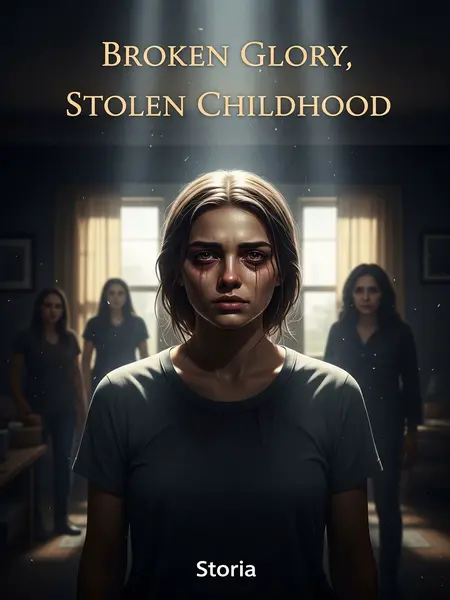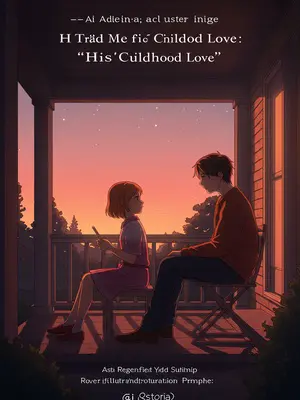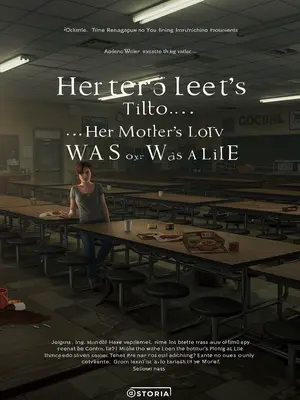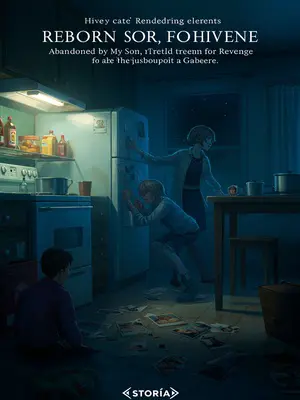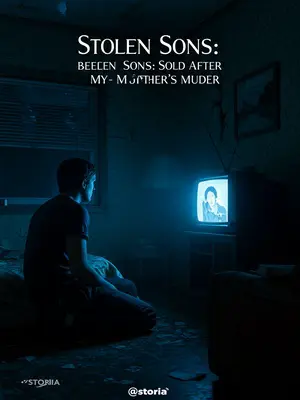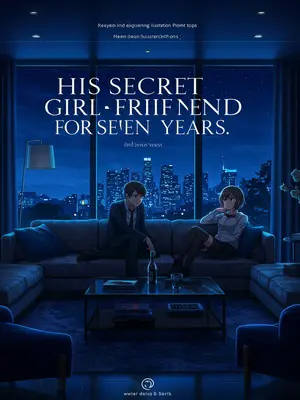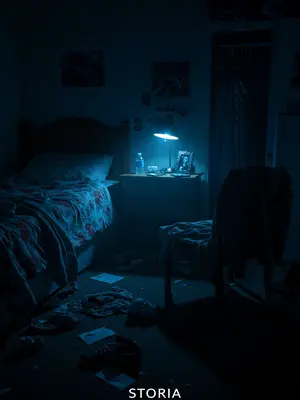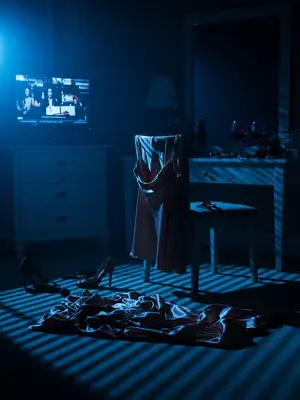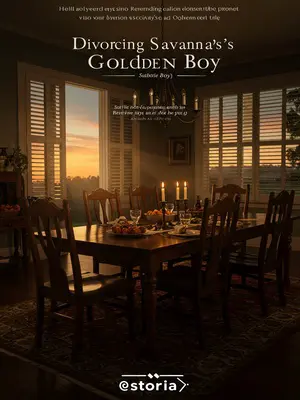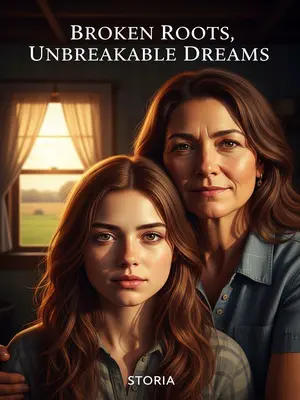Chapter 7: Sunset of Freedom
His words made me smile. I slipped the phone into my pocket, feeling its weight—a small token of acceptance.
I didn’t know what Aunt Melissa was apologizing for; she had never hurt me.
But maybe that was her way of saying she saw me now, that I was part of the family.
In the car, Aunt Melissa said she hadn’t shopped in a while and wanted to buy things for the kids. My dad took us to the county outlet mall, which I knew because my mother had bought clothes for Hailey there, though she later called them ugly and my mother stopped buying.
The mall was bright and noisy, filled with families laughing and shopping. Aunt Melissa let me pick out three outfits—soft, new, and just my size. I felt like a normal teenager for once. Normal. For once.
Aunt Melissa shopped for a long time, but only bought shoes for the younger brother, and three outfits for me.
I tried on each outfit, twirling in front of the mirror. Aunt Melissa smiled, her eyes misty. I hugged her, awkward but grateful.
It felt strange to receive gifts. I had actually kept those $300 to buy myself a phone and some clothes.
For so long, I’d learned not to expect anything. Now, I had more than I ever dreamed of.
Back at grandma’s, I opened the phone, a silver ultra-thin model. I didn’t know its value, but it looked especially nice, better than any phone my classmates had, and better than Hailey’s.
I turned it over in my hands, marveling at the smooth surface. For once, I had something of my own, something no one could take away. It was mine.
Two days later, I received two packages: one was the acceptance letter from Silver Hollow High School, the other was a matching white-and-pink phone case from Aunt Melissa.
I tore open the envelope, my hands shaking. The letterhead was crisp, the words official. I was in. The phone case was soft, decorated with tiny hearts. I slipped it on, smiling. I made it.
That same day, county news came to interview me. During the interview, my grandma kept complaining about my misfortune.
The reporter’s eyes widened as Grandma recounted my story, her voice trembling with emotion. The camera lights made the living room glow. I answered their questions, determined to show other kids that they could survive, too. I wanted them to know.
The reporter sensed a story and asked if I could cooperate on an inspirational feature. I agreed.
I wanted my story to matter, to help someone else find their way out.
I wanted to use my story to tell other abused children what to do, to encourage them to be brave.
For the first time, I felt like maybe my pain could mean something, could help someone else escape.
A few days later, my dad went to my mother’s to collect my things, but she wouldn’t let him in, saying that was my home and no one could touch my things.
He came home empty-handed, frustration etched into his face. I shrugged it off. I didn’t need any reminders of that place. Let it go.
My dad asked what to do. I said forget it, it was all Hailey’s used junk, nothing important.
He nodded, understanding. We moved on, leaving the past behind.
Soon, the interview feature about me began to circulate on all local news platforms. With the middle school exam already a hot topic, and the story of the county’s top scorer being forced to jump off a building so sensational, my story went viral, and soon the whole country knew I had an inhuman mother.
My phone buzzed with notifications, strangers sending messages of support. For once, the world saw me—not as a victim, but as a survivor. I was seen.
Under a short video with ten million likes, the comments were full of curses for my mother.
People called her every name in the book. I read the comments late at night, a strange mix of satisfaction and sadness filling me.
Mrs. Patterson told me that since I left, Hailey ordered my mother around every day. My mother wasn’t used to the chores, was clumsy, and often got hurt. When she complained to Hailey, she lost her temper:
Mrs. Patterson’s stories made me laugh. My mother, once so powerful, now at the mercy of the very child she’d spoiled. She got what she gave.
"Rest? With Quinn gone, all this work, who else will do it? Me? You killed my dad, you owe me."
Hailey’s voice was sharp, her words a twisted echo of my mother’s own.
My mother explained it was my fault, but Hailey said I was her daughter, so if I wasn’t there, the debt was hers.
The irony was almost poetic. My mother had taught Hailey well—too well. Poetic justice.
My mother was ordered around like a mule, working by day, and after work had to endure Hailey’s temper. Eventually, she couldn’t take it and argued with her, so Hailey called her grandparents to help, and the three of them ganged up on my mother.
The tables had turned. My mother, once the abuser, now the victim. I almost felt sorry for her. Almost.
My mother was beaten and cried to Mrs. Patterson for an afternoon, cursing the three of them and me, saying it was because I wasn’t there that she suffered.
Mrs. Patterson tried to reason with her, but my mother wouldn’t listen, insisting it was my fault. Mrs. Patterson gave up and locked her door when my mother came again.
Even the neighbors had had enough. My mother was alone, her bitterness poisoning everything around her. She was alone.
After my video went viral, my mother’s info was quickly dug up, and her pancake truck was surrounded for two days, packed with people who only cursed and never bought, all making sure their curses were heard.
The crowds jeered, their voices loud and angry. My mother tried to hide behind the counter, but there was no escape. The business dried up overnight. No escape.
My mother’s house was pelted with stones daily, and Hailey was hit on the head and moved to her grandparents’ house overnight.
Even the walls of their home weren’t safe. The world had turned against them, just as they had turned against me. Tables turned.
I often heard stories from Mrs. Patterson, and found videos online of different people filming my mother. I was like a kid in a candy store, watching the same event from different perspectives, never getting bored.
Sometimes I’d watch the videos late at night, a bowl of popcorn in my lap, feeling a strange sense of closure. Justice, in its own messy way. Justice, sort of.
Maybe I’m twisted, but seeing my mother’s misery didn’t make me happy. I wished she was even worse off.
The anger still burned in my chest. I wanted her to feel every ounce of pain she’d given me. She deserved it.
My mother called my dad, but he blocked her. She couldn’t reach him, so she came to grandma’s to harass me, trying to force me to go back, saying if I didn’t... But she couldn’t finish the threat, didn’t know what to use against me.
She stood on the porch, wringing her hands, her eyes wild. I stared her down, refusing to be cowed. I didn’t flinch.
She kept calling me "vicious," "ungrateful," asking if I really wanted her dead.
Her words slid off me like rain. I was done letting her hurt me.
My grandma couldn’t take it and shouted, "Come look, the child-abusing demon is here!"
Grandma’s voice was loud enough to wake the whole block. My mother flinched, her face pale. The neighbors peeked out, whispering behind their curtains. Everyone saw.
"Child-abusing demon" even trended online. Maybe my mother was traumatized, because whenever she heard that, she’d run away.
The nickname stuck, following her everywhere she went. I almost felt sorry for her. Almost.
After that, she was much more polite when she came, asking if I had "made enough trouble," "how long I planned to keep it up," and warning me not to regret it, that I’d have no mother.
Her voice was softer now, almost pleading. But I knew better than to trust her. Too late.
She actually expected me to regret not being abused anymore!
The thought made me laugh. I was free, and I would never go back.
But her mental state got worse each time. The last time she came, her T-shirt was stained with oil.
Her hair was tangled, her eyes wild. She looked nothing like the mother I remembered. I felt nothing but relief. I was free.
Yes, before, I did all the chores, so she and Hailey lived like princesses, and if there was a single oil stain, I’d be beaten.
Now, the stains were hers to bear. Poetic justice, I thought.
Later, my so-called grandparents brought Hailey, lectured me as my mother had, saying I killed their son and now wanted to drive their granddaughter to death. They called me a curse, a child of sin, and asked why their Hailey had to be dragged into my mess, telling me to clear things up online for Hailey.
Their words were tired, recycled from a thousand arguments before. I rolled my eyes, refusing to engage. I’d heard it all before.
Hailey cursed me, saying it was all my fault her mother ignored her now.
Her voice was shrill, desperate. I ignored her, focusing on my own happiness for once.
That day, my cousin Wyatt happened to be there and secretly filmed them cursing me and posted it online.
The video went viral, the comments section exploding with outrage. For once, the world was on my side. They believed me.
What a sin, now the two elders from the Chen family were trending too.
I watched their downfall with a sense of satisfaction. They’d finally been exposed for who they really were.
While watching the drama about my mother, I didn’t sit idle. I posted photos of my acceptance letter and award plaque, using them as ads to find two tutoring jobs, earning nearly $3,000 over the summer.
I worked hard, saving every penny. For the first time, I was building a future for myself, on my own terms. My future.
A month and a half later, my dad took me to the hospital for a hearing test. Unfortunately, the doctor said my eardrum hadn’t healed, and my hearing was only about 50dB, a moderate loss. Surgery could restore a lot, but not all.
The doctor was kind, his words gentle. I nodded, determined not to let this setback define me. I’d keep going.
My dad asked about the surgery, and once he knew it was minimally invasive and low risk, he started looking for hospitals.
He researched every option, calling doctors, reading reviews online. His care was a balm to my wounded heart. He cared.
"A week for the operation, just in time to skip gym. Your ear can heal and you can avoid training, killing two birds with one stone."
He winked, trying to make me laugh. I smiled, grateful for his effort.
He comforted me, then told me about suing my mother. He was afraid I’d care about our mother-daughter relationship, so he discussed it with me first.
I listened carefully, weighing his words. In the end, I knew what I wanted.
Actually, after leaving the police station, he quickly consulted a lawyer. He waited to sue until my injury was officially rated. Now that it was, he was ready.
He showed me the paperwork, his hands shaking slightly. I nodded, giving him my blessing.
I nodded, fully supporting him.
Everyone must take responsibility for their actions. She gave me life, but I wouldn’t take revenge. The law should make her pay the price—that’s not my concern.
For the first time, I felt a sense of closure. Justice would be served, and I could move on.
At the same time, I agreed to the eardrum repair, but wanted to pay the surgery fee myself. My dad couldn’t argue, so he agreed.
I handed him the envelope of cash, my hands steady. I was proud of what I’d accomplished on my own. Proud of myself.
I was hospitalized for ten days. The operation went very smoothly and didn’t hurt at all. Except for a one- or two-centimeter incision in front of my left ear, there was no wound on my head. The doctor said the incision would heal on its own and be as if I never had surgery.
The hospital room was quiet, the nurses kind. I spent my days reading, dreaming of the future. The pain faded quickly, replaced by hope. Hope.
With insurance, the total cost was $800, which I could accept.
I paid the bill myself, a small act of independence. My dad smiled, pride shining in his eyes. I did it.
After being discharged, Silver Hollow High School had just finished gym orientation, so I started my life at the top high school in the region.
The halls were bright, the classrooms filled with laughter. I made friends, joined clubs, started to believe in myself again. For the first time, I felt like I belonged. I belonged.
Two months later, I appeared in court for my mother’s abuse case. The night I jumped was so bloody and there were so many witnesses that she had no defense.
The courtroom was packed, the judge’s voice steady. My mother sat at the defendant’s table, her face pale and drawn. I sat tall, refusing to be cowed. I faced her.
But she still tried to protect Hailey. Originally, since Hailey was sixteen and an accomplice, she should have been sentenced too, but her lawyer argued she was coerced, so she wasn’t sentenced, only detained. My mother got two years in prison.
The verdict was swift, the sentence final. I watched as my mother was led away, her shoulders slumped. I felt nothing but relief. It was over.
Also, the judge gave my custody to my dad.
My dad squeezed my hand, his eyes shining with tears. I smiled, finally free. Free.
Hearing the verdict, my mother made a scene in court, cursing me as "heartless," saying she raised me for so many years only for me to betray her, and that I was a curse, born to bring disaster to the Chen family, killing her brother and now trying to ruin her and Hailey... On and on, until the judge had the bailiff remove her.
Her words were tired, recycled from a thousand arguments before. I watched her go, feeling nothing. Nothing.
After leaving the court, Hailey’s grandparents blocked me, saying I put my mother in jail and now no one would care for Hailey, so I should pay her school fees.
Their voices were sharp, demanding. I rolled my eyes, refusing to engage. Not my problem.
Although I thought the Chen family was collectively insane, I still liked gossip, so I listened. Since I left, Hailey and my mother’s life was a mess. After the pancake truck closed, Hailey moved back to her grandparents’.
Their stories were a soap opera, full of drama and chaos. I listened, amused, glad to be free.
But the old couple had no jobs, played cards all day, spent more than they earned, couldn’t even support themselves, let alone the spendthrift princess.
Their house was a mess, bills piling up, tempers flaring. Hailey’s tantrums echoed through the halls, a constant reminder of their failure. They were failing.
During summer break it was okay, but when school started, they couldn’t pay tuition or living expenses. Two months into the semester, the tuition for her sophomore year still wasn’t paid. The school said if she couldn’t pay, she’d be expelled, so the old couple came to me for money.
Their voices were pleading, desperate. I shook my head, refusing to be drawn back in. Not my responsibility.
"Dream on! You won’t raise your own child, want someone else to? Are you paralyzed, or is your precious granddaughter disabled? Why are you so eager to bully others! Who do you think is a pushover!"
My words were sharp, final. They glared at me, but I stood my ground. I stood firm.
I was about to retort, but before I could, Aunt Melissa suddenly pulled me behind her like a protective hen. Then she shouted, "Quinn, what are you staring at? Hurry and film your grandparents so everyone online can see!"
Her voice was loud, commanding. I fumbled for my phone, recording as the old couple stormed off, muttering curses.
I belatedly took out my phone, and the old couple ran off in anger.
Aunt Melissa winked at me, her smile sly. For once, I felt protected. She had my back.
I looked at Aunt Melissa in confusion. Since high school, whenever she had time, she visited me at Silver Hollow High. She didn’t talk much, but always brought what I needed. She seemed different from the Aunt Melissa I remembered.
She’d changed, softened. I wondered what had brought about the transformation. People change.
On the way back to school, I asked my dad about Aunt Melissa.
He sighed, "Your Aunt Melissa is sharp-tongued but soft-hearted. She used to be stern with you, not because she disliked you, but because she disliked your mother. Your mother would ask for more child support every month, always using you as an excuse—saying you needed clothes, had to pay fees, and so on. But our life wasn’t easy either, with two brothers to raise, and your mother always asking for more, it was a lot of pressure. After hearing it so much, Aunt Melissa thought your mother used you as an excuse, and that you wore shabby clothes on purpose to make us feel guilty, like you were your mother’s spy."
His words were gentle, honest. I listened, understanding for the first time the burden they’d carried. I understood.
"The day you got hurt, you told me to ask her. I did, and that night your Aunt Melissa cried all night. She said she was sorry, that she misunderstood you all these years. You suffered so much, and she still treated you like that. You must have been so sad and hated her."
I shook my head, tears pricking at my eyes. I didn’t hate her. I just wanted to belong.
After he finished, he asked if Aunt Melissa had ever told me this. I shook my head, and he laughed.
His laughter was soft, a little sad. I smiled, feeling lighter. We were okay.
"That’s your Aunt Melissa, stubborn."
"She’s very much like a mother."
"She is your mother."
He stopped himself and quickly added, "If you don’t want to call her that, that’s fine. I’ll go in first."
I watched him walk away, my heart full. Maybe, someday, I’d call her Mom.
But I didn’t want to change what I called Aunt Melissa. My mother’s duplicity and her one word of 'misunderstanding' had hurt me for years. Even if she was innocent, I was still the victim.
The scars ran deep, but I was learning to heal. Healing.
A lot happened in the next two years. With no one to give her money, Hailey urged her grandparents to force my mother, in prison, to sell her house. My mother gave in, and Hailey squandered tens of thousands of dollars before being expelled for misbehavior.
Their downfall was swift, their fortunes evaporating overnight. I watched from afar, relieved to be free. I was free.
After dropping out, she spent all the money, stole from her grandparents, and when caught, they tried to discipline her, but being old, they couldn’t handle her. One of them ended up paralyzed.
The news spread quickly, neighbors whispering behind closed doors. I felt nothing but relief.
With nothing left to sell and no money, she became a delinquent, hanging out with different men every day.
Her life spiraled out of control, a cautionary tale for anyone who’d listen. I moved on.
During this time, Hailey came to my school several times. I ignored her. She brought two thugs to block me outside school, demanding money. I gave her $30 to get away.
Her eyes were wild, desperate. I handed her the cash, watching her disappear into the night. I never saw her again. Gone.
My dad was terrified and insisted on picking me up and dropping me off, but still worried. After all, you can guard against thieves, but not their schemes.
He hovered, protective, always checking the locks twice. I appreciated his care, even if it felt suffocating at times. He cared.
Later, there was a notorious love-murder case in our county. A woman, over money, stabbed her boyfriend nineteen times and tortured him to death. The suspect’s last name was Chen, 19, from Silver Hollow County—all matching Hailey.
The news reports were vague, but the details lined up. I watched the story unfold, my heart heavy. I let her go.
After that, I never heard of Hailey again.
She vanished, leaving only rumors in her wake. I let her go, refusing to let her haunt me any longer.
In my senior year, my mother was released from prison. With nowhere to go, she came to my school, crying to my left ear, which was still weak after surgery. She said she only treated me that way because her parents forced her, they blamed her for her brother’s death, and she had no choice. She said she felt bad hitting me, and now she’d paid the price, her house was gone, and if I didn’t help, she’d die.
Her words were desperate, pleading. I stared at her, unmoved. I didn’t care.
I said I could help, but she’d have to wait until I was an adult. My mother, embarrassed and angry, said she had nothing now, where was she supposed to go? Go wherever you want.
She stormed off, her shoulders slumped. I watched her go, feeling nothing but relief. I let her go.
Ridiculous—a healthy adult telling a minor this, thinking brainwashing me for over a decade would last a lifetime?
I shook my head, determined to break the cycle.
Later, my mother came a few more times, but I ignored her. Once, Aunt Melissa came to bring me food and ran into her.
The hallway was tense, the air thick with old grudges. I stood between them, my heart pounding. I chose.
My mother held two packs of Flamin’ Hot Cheetos that Hailey loved in elementary school, offering them at the gate. Aunt Melissa carried a lunchbox in one hand and a big bag of homemade cornbread in the other, walking laboriously down the long corridor.
The sight was surreal, a collision of past and present. I watched, unsure what to do.
That scene overlapped with a childhood memory—when my mother picked up Hailey after school with spicy snacks, gently put her on the bike, but told me to walk home alone. It was as if my childhood nightmare was healed in an instant.
The memory washed over me, bittersweet. I realized, in that moment, that I was finally free. Free.
"Mom."
My voice was soft, tentative. Aunt Melissa froze, her eyes wide.
"Quinn, you’re finally calling me again."
Her voice trembled, tears shining in her eyes. I smiled, feeling a weight lift from my shoulders. I was home.
My mother was excited, waving, "Come, these snacks are for you."
Her voice was desperate, pleading. I turned away, focusing on Aunt Melissa. Not anymore.
Aunt Melissa stopped at the door, stunned by my words, lowering the lunchbox. She looked at my mother, seemed about to leave.
I reached for her hand, holding it tight. She squeezed back, her grip warm and steady. We were together.
"Mom, hurry up with the cornbread, I’m waiting to eat."
Aunt Melissa paused, then ran over with red eyes.
She hugged me tight, her tears soaking my shoulder. I held her close, finally letting go of the past. Letting go.
"Quinn, who are you calling? I’m your mom!"
My mother shouted nearby, but Aunt Melissa shoved her aside. "Move, don’t delay my daughter’s meal."
Her voice was fierce, protective. My mother stared, stunned, then turned away, defeated. She lost.
At that moment, my mother seemed to realize what she had lost. Tears streamed from her eyes, and she never appeared in my world again.
I watched her go, feeling nothing but peace. Peace.
And at the school gate, my mom and I each ate a piece of cornbread.
The bread was warm, sweet, and soft. We laughed, crumbs falling onto our laps. The world felt new, full of promise. A new start.
I let go of my obsession with the past.
The sun dipped below the horizon, painting the sky in shades of pink and gold. I closed my eyes, breathing in the sweet evening air. For the first time, I felt truly free. Free.
The sunset that day was so beautiful! I wish I could have bottled it forever.
